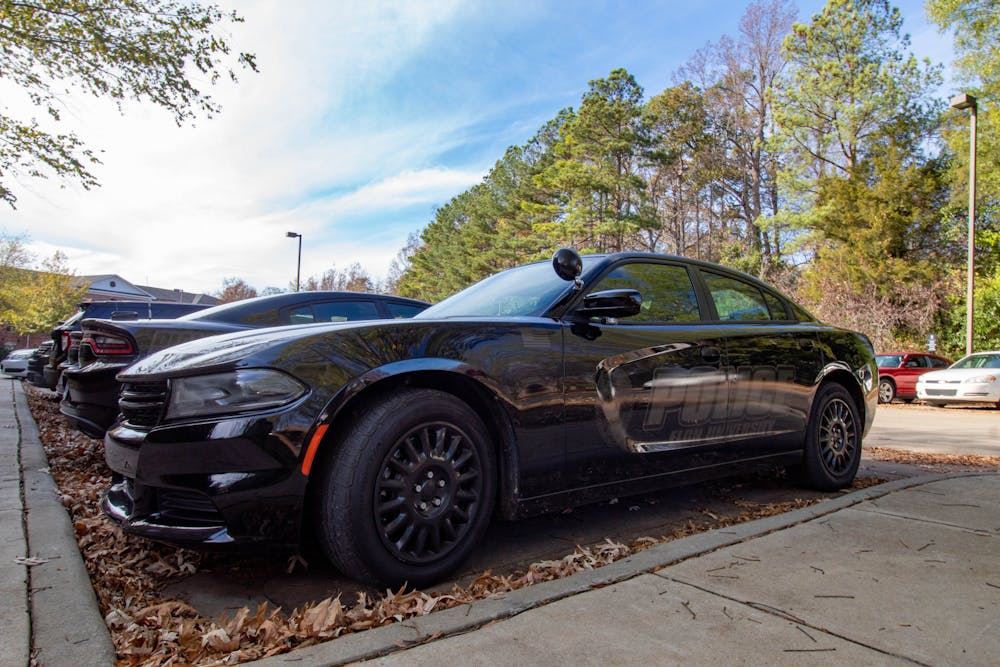A woman had overdosed before and was saved by Narcan, but this time she was alone. When her mother found her, she tried performing CPR, but she had already died.
Cpt. Chris Crain from the Alamance County Sheriff’s Department has this specific case in mind when thinking about the overdose crisis.
“She was describing to me about how she was trying to do CPR, how she felt her daughter's rib break in and things like that,” Crain said. “It was a terrible thing. It affects more than just the person — it affects, obviously, the whole entire family and friend network.”
From 2000 to 2022, over 36,000 North Carolinians died from overdose, according to the North Carolina Department of Health and Human Services, and 3,875 deaths in 2022 alone.
Crain said he has responded to more calls of overdose in Alamance County than he can count — at least two to three a week. Alamance County saw 34 opioid-related overdoses in 2020, 50 in 2021 and 40 in 2022, according to the NCDHHS.
Town of Elon Sgt. Chris Miles said he is seeing more younger people overdosing from fentanyl since it is being laced in drugs such as marijuana and cocaine.
“In my opinion, you have more and more younger people who are overdosing on fentanyl,” Miles said. “Some folks don't even know that they're taking fentanyl, they may be thinking of smoking marijuana and it's fentanyl laced or taking cocaine, it's fentanyl laced, so it's not something that people can really know what they're taking. It's just you take that chance.”
The U.S. Drug Enforcement Administration said in 2023, 7 out of 10 pills seized by the DEA are laced with a potentially lethal amount of fentanyl. Out of the 77,000 counterfeit pills seized by North Carolina in 2021, 80% contained fentanyl, according to the NCDHHS.
Crain said a majority of these cases are from someone going to cities like High Point, Greensboro or Henderson, North Carolina, to buy drugs and keep some for themselves and sell the rest.
“It's a different kind of drug dealing. These people are not doing it for profit,” Crain said. “For example, somebody will jump in their car, and they'll ride to a source city, such as High Point or Greensboro or Henderson, somewhere like that. They will purchase 4 grams of heroin or what they think is heroin, they will bring it back to Alamance County. They will keep a gram for themselves and sell the rest to make enough money to get a room of the hotel, a sandwich from Arby's and get up the next day to do it again.”
Miles also said hotels, particularly on Maple Avenue in Burlington, are prominent sites of overdose.
“From what I've heard and what I've observed about fentanyl as a whole in the county, you have specific hotspots in the county,” Miles said. “Areas like Maple Avenue where the hotels are, it's really been a hot spot for a lot of overdoses. But of course you have a residential neighborhood as well.”
Crain said bringing legal action against a dealer for an overdose is very difficult.
“It's frustrating because it's very hard to bring some sort of legal action against the person that's selling it,” Crain said. “It's very frustrating because there's a lot of hoops to jump through to get a successful prosecution.”
One way law enforcement is working to limit overdoses is by carrying Naloxone — a medication used to reverse the effects of an overdose, according to the National Institute on Drug Abuse. The Elon University Campus Police, town of Elon Police Department and Burlington Police Department started carrying Naloxone in 2016, according to the North Carolina Harm Reduction Coalition.
Another way law enforcement is trying to reduce overdoses is with outreach and advocacy. Miles is head of the Community, Advocacy, Response and Engagement Team — a program where officers help someone in the community, whether it is a mental health problem, domestic violence or assault follow-up, or even checking in on older residents.
“As a CARE Team as we go out, recognize a person has an issue, and we try to keep following up with him until we can nurse them back to him so to speak,” Miles said. “It may be contacting the parent, letting the parents know, ‘Hey, you know the Elon Police Department is here for your daughter, your son and why they're here.’ I know they may be hundreds of miles away, but this may happen. That may be giving them my personal cell phone number for them to call me. I have several parents that do call me to follow up and let me know if you know they're feeling OK.”


